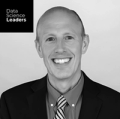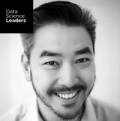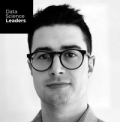episode 20
Data Challenges and the Promising Role of Product Analytics in Healthcare
Data Science Leaders | 31:50 | September 22, 2021

Listen how you want
Get new episodes in your inbox
In a perfect world, healthcare data would always be strategically organized, up-to-date, and easily accessible—all in a patient-centered, privacy-first way. But the reality is much more complex.
Robin Foreman, Director of Data Science at CVS Health, joins the show to discuss the challenging world of data science in clinical trials. She also explains how product analytics can be used on the back end of model implementation to answer the key question of “did it work?”
Robin shared her perspective on:
- Turning a PhD in public health into a career as a data science leader
- Navigating data science and clinical trials
- The life cycle of product analytics
Popular episodes

Featured Guest
Mike Gualtieri, VP and Principal Analyst at Forrester

James Cham
Partner, Bloomberg Beta
EPISODE 71April 11, 2024
Unlocking the disruptive potential of generative AI: a VC perspective
Listen Now | 28:49
Volodimir Olexiouk
Director of Scientific Engagement and Data Science Team Lead, BioLizard
EPISODE 70March 28, 2024